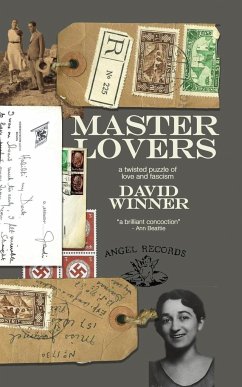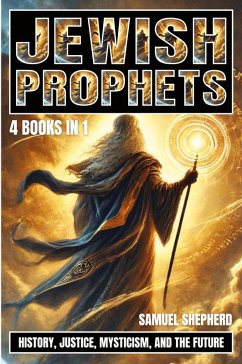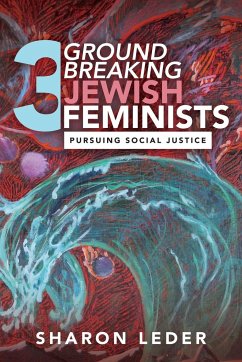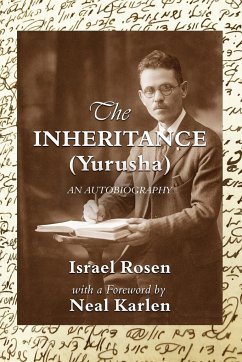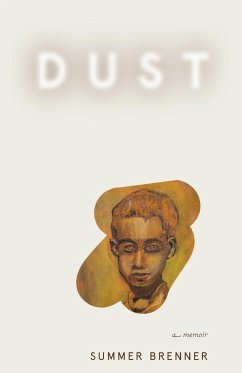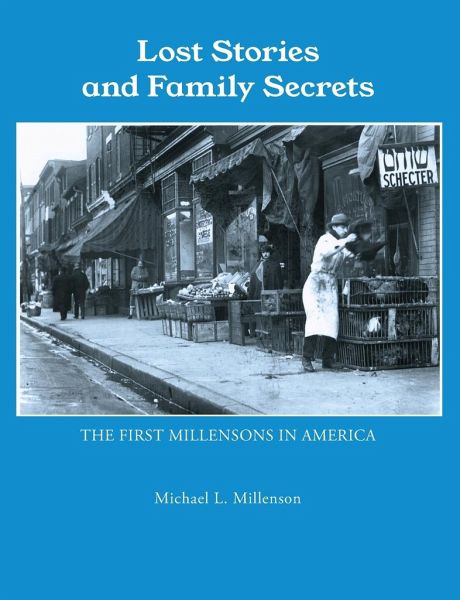
Lost Stories & Family Secrets
Versandkostenfrei!
Versandfertig in 1-2 Wochen
30,99 €
inkl. MwSt.

PAYBACK Punkte
15 °P sammeln!
In the mid-19th century, a family in the tiny Lithuanian shtetl of Grinkishok changed the last name of a young male child in order to fool czarist officials into believing he was an only son. It was a common ploy to avoid an army that drafted Jewish boys as young as 12 and kept them for up to 25 years. When Baruch Abramson - now Baruch Millenson - grew up, married, and had sons of his own, he went a large step further and fled from Lithuania with his entire family. This book tells the story of how the first Millensons - Baruch and wife Dena and their sons Louis, Jacob and Meyer - found their w...
In the mid-19th century, a family in the tiny Lithuanian shtetl of Grinkishok changed the last name of a young male child in order to fool czarist officials into believing he was an only son. It was a common ploy to avoid an army that drafted Jewish boys as young as 12 and kept them for up to 25 years. When Baruch Abramson - now Baruch Millenson - grew up, married, and had sons of his own, he went a large step further and fled from Lithuania with his entire family. This book tells the story of how the first Millensons - Baruch and wife Dena and their sons Louis, Jacob and Meyer - found their way to America and then found their way in America. It covers a roughly 100-year period from the name change to when the last of Baruch's three sons died. Some of this story is inspirational, a classic tale of entrepreneurial immigrants who arrived with neither money nor language skills and slowly built a better life. They were surprisingly mobile and determinedly resilient, seeking opportunity in bustling cities and tiny towns in the East, West, Midwest, and South. One of the first American Millensons lived at some point in Baltimore, Cumberland, and East New Market, Maryland; Harrisburg and Philadelphia, PA; Eastville, VA; Washington, DC.; Chicago, IL; Milwaukee, WI; and Denver, CO. And that doesn't count possible family peregrinations between leaving Grinkishok and boarding a ship to America. Some parts of this story remain deeply disturbing, even decades later. There are abandoned children, suspicious store fires, a suicide, and an abortion gone wrong. There's also a child born of a hushed-up affair, discovered when that child's granddaughter took a DNA test that eventually connected her to this book's author. Finally, some parts of this story are simply puzzling; e.g., why Baruch's boys, products of Eastern Europe, often self-identified as German. Or why Baruch, a Litvak shochet and rabbi, belonged to a Lubavitcher Chasid synagogue in Baltimore. A question that does seem to have been resolved, however, is how the Abramsons of Grinkishok came to choose the name "Millenson." The surprising answer contained in one of the book's appendices, which connects the Yiddish version of "Millenson" to a Lithuanian nickname for Baruch's mother, could help other Jewish families doing genealogical research. Another appendix examines the hazards of assuming that someone sharing even an unusual last name must be a relative. A number of years of research uncovered almost no firsthand information from the first Millensons and just a few recollections from those who either knew them or were told stories by those who did. While that information proved invaluable, Lost Stories & Family Secrets was largely assembled from bits and pieces of information gleaned from newspaper articles, city directories, census information, court records, and other documents. Inferences about what all those facts meant were then based on further research into the economic and social context of the times. What has emerged from this process is a picture not only of individuals with complex and compelling life stories, but a candid examination without nostalgia of what life was like for many Jewish (and non-Jewish) immigrants of that era. Fleeing often brutal conditions in Europe, they arrived here not speaking the language and without any social safety net. They relied heavily on family and ethnic ties, and they did what they thought they needed to do to survive. Some of the lost stories and family secrets of that era, bringing both pride and pain, have been rescued here.



